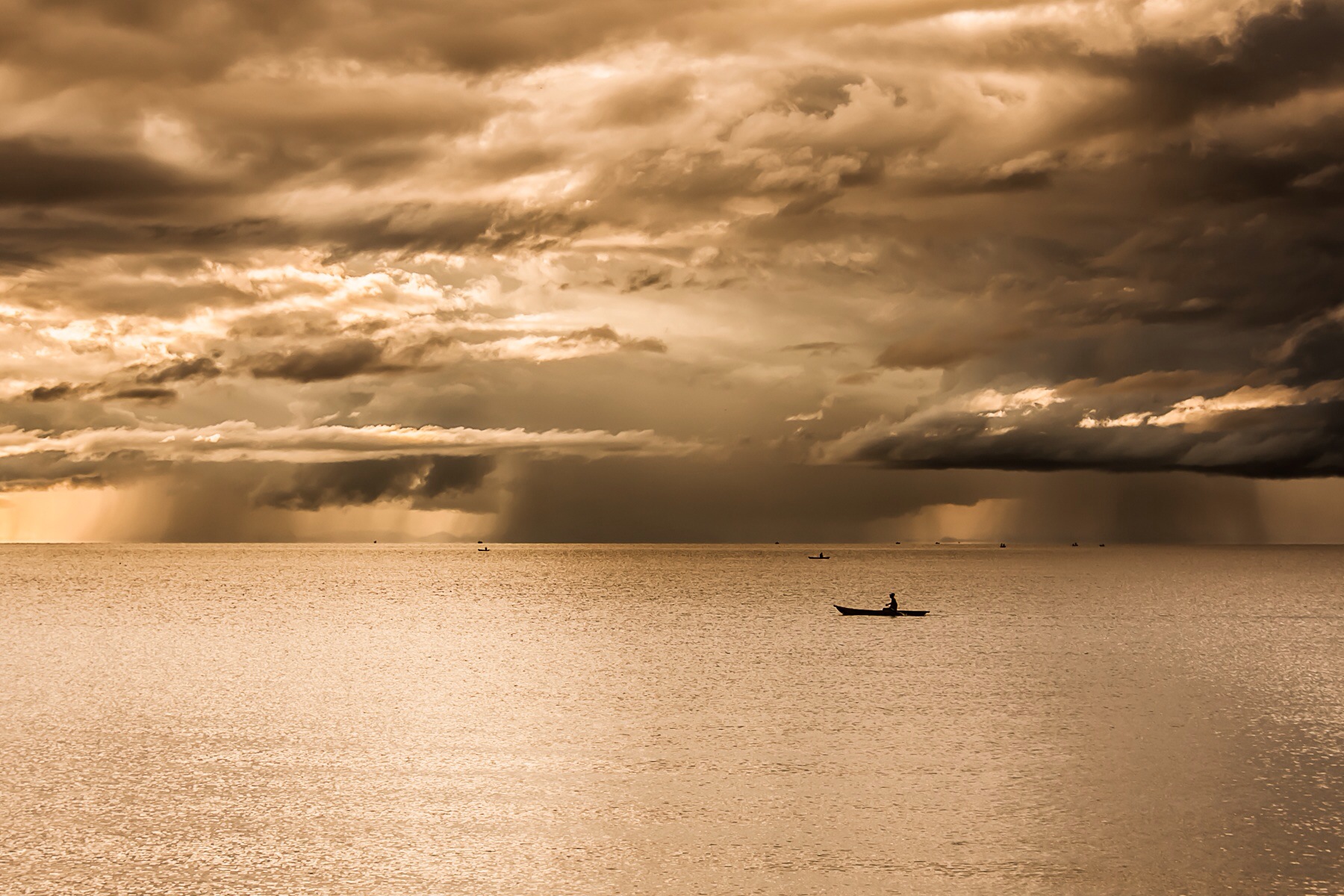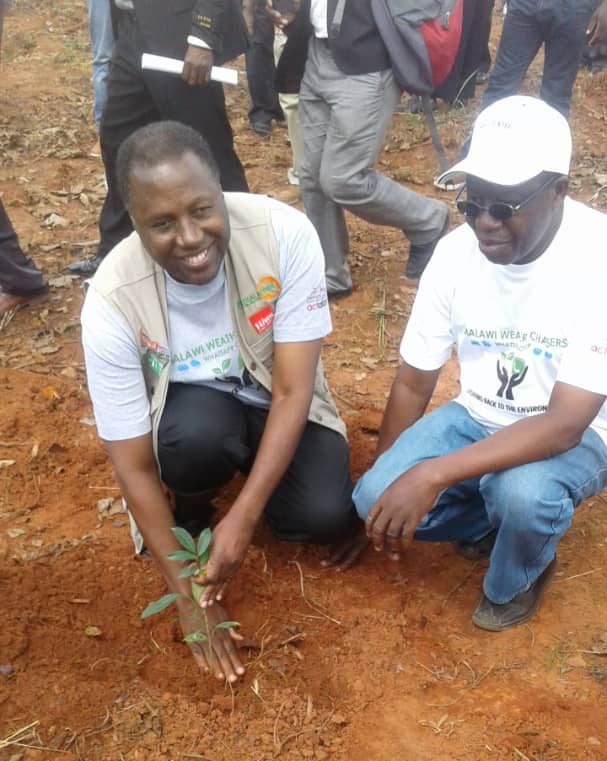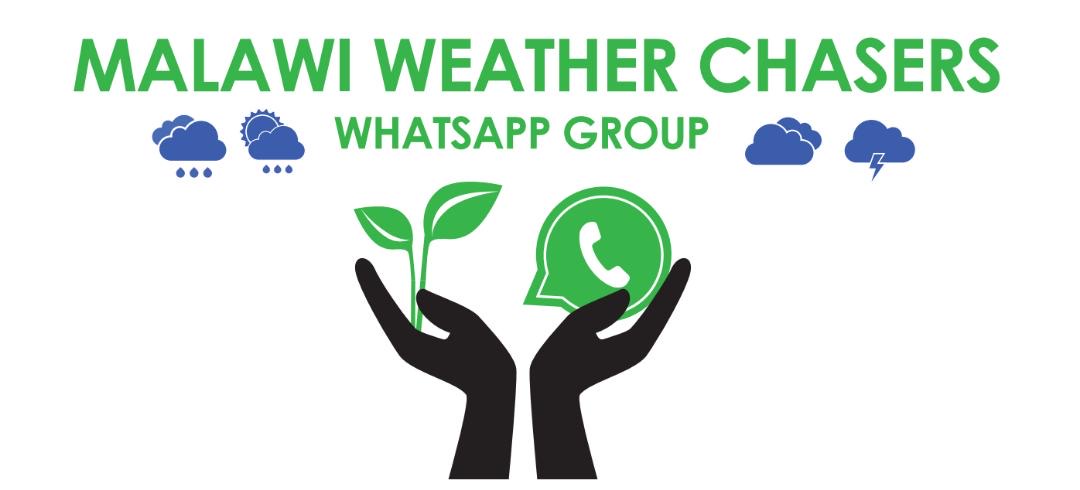Malawi Weather Chasers – celebrating four years of early warning and civic action
Malawi Weather Chasers – celebrating four years of early warning and civic action
The Malawi Weather Chasers group is entering its fifth year and looks back on its evolution from an early warning channel to a community of civic action. Katharine Vincent of Kulima reports.
Beginnings as an early warning channel
The Malawi Weather Chasers WhatsApp group was established in January 2016 to improve communication of early warning weather information. Recognising a gap in getting weather forecast information to the grassroots level, the Department of Climate Change and Meteorological Services (DCCMS) requested support from the World Meteorological Organisation on a Common Alert Protocol – an international standard format for emergency alerting and public warning.
Subsequent discussions on a Common Alert Protocol in Malawi suggested that WhatsApp would be an appropriate and accessible platform. Until that point, early warning information had been broadcast only by radio and television. However, with limited access to these technologies, there was often a time lag.
Widespread ownership of mobile phones meant that information could be transmitted straight to users, increasing the likelihood that the right people would receive it in good time. The Weather Chasers group was thus born. It was chaired by Professor Sosten Chiotha with its Secretariat at the Department of Climate Change and Meteorological Services (DCCMS), administered by Head of Public Weather Services Yobu Kachiwanda (see also (Capitalising on communication channels – How Malawi uses WhatsApp for weather information).
A number of related organisations and programmes were also grappling at the time with how to better communicate early warning information to reduce disaster risk. A number of these supported an initial workshop to raise awareness of Weather Chasers, including the DFID-funded Enhancing Community Resilience Programme, Lake Chilwa Basin Climate Change Adaptation Programme, United Nations Development Programme, Department of Disaster Management Affairs, Department of Water Affairs, and the convening DCCMS.
From that early meeting, the scope of Weather Chasers soon expanded beyond purely early warning information under the Common Alert Protocol. DCCMS were able to add the medium to their existing channels for disseminating their seasonal and short-term (1-10 day) forecast information. However, it was not just a mechanism for one way dissemination.
‘Weather spotters’ get to work
 As well as an opportunity for DCCMS to send their information out – the Weather Chasers WhatsApp group provided an opportunity for them to receive information back from communities – a form of citizen science. Daily observations recorded by the registered keepers from 21 weather stations are sent through the list. Members, who quickly grew to 256 – the limit of capacity of a WhatsApp group – and were dispersed across the country, were encouraged to send in actual weather observations at any date and time. DCCMS was then able to use these “spotter reports” to verify their forecasts and contribute to improvements in reliability.
As well as an opportunity for DCCMS to send their information out – the Weather Chasers WhatsApp group provided an opportunity for them to receive information back from communities – a form of citizen science. Daily observations recorded by the registered keepers from 21 weather stations are sent through the list. Members, who quickly grew to 256 – the limit of capacity of a WhatsApp group – and were dispersed across the country, were encouraged to send in actual weather observations at any date and time. DCCMS was then able to use these “spotter reports” to verify their forecasts and contribute to improvements in reliability.
Membership of Weather Chasers is diverse and creates a non-hierarchical forum in which people of many backgrounds are brought together by their common interest in, and commitment to, weather and climate issues. Parliamentarians, policy-makers, academics, media, technicians with different disciplinary backgrounds and farmers all “interact with mutual respect and oneness of purpose” according to Professor Chiotha, who also highlights that “the attraction of the platform is that anyone can contribute, and there is always something new to learn”.
Platform for spurring civic action
 The Weather Chasers has created a useful forum for discussing not just the weather outlook, but also impacts on infrastructure, agriculture, education, water supply, environment, natural resources, disaster risk management, energy and health. Since these are issues that affect everyone directly or indirectly, Professor Chiotha believes that the platform has created an intrinsic motivating factor for active participation and debate. Whilst the impact of weather and climate on society is quite complex, the group has risen to the challenge because of the diversity of membership and willingness of everyone to both provide their own inputs, and consider those of others.
The Weather Chasers has created a useful forum for discussing not just the weather outlook, but also impacts on infrastructure, agriculture, education, water supply, environment, natural resources, disaster risk management, energy and health. Since these are issues that affect everyone directly or indirectly, Professor Chiotha believes that the platform has created an intrinsic motivating factor for active participation and debate. Whilst the impact of weather and climate on society is quite complex, the group has risen to the challenge because of the diversity of membership and willingness of everyone to both provide their own inputs, and consider those of others.
The constructive nature of dialogue has had broader implications, with members taking forward discussions in their own organisations. As one example, when the Weather Chasers have highlighted damage to road as a result of floods and subsidence, members from the National Roads Authority have taken up those issues and reported progress back through the group. Sub-committees have also formed to monitor allied environmental issues, such as the recent thin plastic ban and illegal mining.
More than simply learning, the gathering of like-minded individuals with commitment to weather and climate issues also spurred some grassroots civic action. Deforestation is major issue in Malawi and contributes to the impacts of flash floods. For the last three years, the group has fundraised through its own pockets to support tree planting activities in different districts of the country (Weather Chasers of Malawi care for communities – and the climate). Among Professor Chiotha’s proudest memories of Weather Chasers is how members “went beyond talk and got their hands dirty through planting of trees”. He also mentioned other incidences of compassion – for example where members contributed funds in support of communities whose relatives drowned in a boat tragedy due to strong winds.
New chairperson pledges to keep up momentum
Incoming chair, Dorothy Tembo-Nhlema, is looking forward to continuing the diverse impact of the Weather Chasers group. She is already seeking suggestions and inputs from the group for future civil action, with ideas including rubbish clean up campaigns and weather and climate education for school children. She has also been approached by government departments and NGOs seeking partnership to implement activities that will contribute to a shared vision. “This unique group has developed momentum under Professor Chiotha’s guidance, and I look forward to building on that”, she says.
The uniqueness of Weather Chasers has attracted international recognition of the platform as a successful innovation in using social media to improve early warning systems. It was discussed by participants of the Earth Day Climate Hackathon last week on the theme of the urgency of communicating climate change. It was also presented at the 12th American Meteorological Society Symposium on Societal Applications: Policy, Research and Practice (watch the recorded presentation “Malawi Weather Chasers: Using Social Media to Jumpstart Dissemination, Event Reporting, and Preparedness”)
Professor Chiotha firmly believes there is a role for a similar forum in other countries. To other prospective chairs who wish to follow suit, he offers the following advice, “De-mystify weather and climate change because everyone is affected by their impacts, and it means everyone has a role to play towards building effective, resilient systems.”
Images: (upper right) Weather Chasers Group; (above) Sosten Chiota, planting a tree (credit Weather Chasers); (middle) clouds over Lake Malawi (credit Neville Nel, flickr.com)

